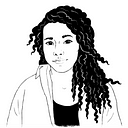Graeber Explained: A Series
The central lie of economics (or to say it the nicer way, the central myth), is the concept that human exchange began with bartering — Person A gives potatoes in exchange for Person B’s milk. In reality, that has never really happened in history. Graeber, an anthropologist and scholar, walks through in detail all the ways that this myth is false, and gets to the core of how human exchange really began — an understanding that in order for small, agricultural or hunter-gatherer communities to survive, humans had to help each other. This typically manifested in something more like Person A giving Person B potatoes, because Person A had extra potatoes. Later on, Person B has some extra milk, and remembering Person A’s kindness, gives them the milk. Note that this is not just based on “goodness” or “kindness” but also just a central practicality, compared to a theory that a complicated coincident had to occur (Person A needs milk, and has potatoes, at exactly the same time that Person B needs potatoes, and has milk).
Honestly, at face value, this sounds a lot like bartering, just with some time in-between. But the main reason the central myth is so powerful is because of its implications about money and currency. The implication of the central myth is that valuable currency just arose because people needed it to make bartering more practical. In reality, true currencies did not arise that way. I say “true” currencies because often, people did use small currencies as units of measurement — porcelain beads, cowries, “coupons” from shops stamped with the vendor’s design. People also used major items for ceremonial transactions like dowries, diplomatic exchanges, or community reparations — cattle, brass rods. But you could not use bride price “money” to purchase produce or everyday goods. So, in fact, the “currency” was more a ceremonial acknowledgement that there is really nothing that can be exchanged for a human life.
No, true currencies did not arise “naturally”. Instead, they were created by governments. Governments distributed the currency to their employees (in the beginning primarily armies) and demanded it back in the form taxes on common people. Thus, the only way for common people to pay taxes with the correct currency was to exchange goods for a soldier’s currency when they came marching through their village, eventually leading to the widespread use of this currency. Note how currency and militarism is tightly linked there.
This shifts our understanding of a lot of concepts and theories — primarily, economics is not physics. Newton’s first law, Force = Mass * Acceleration, is a discovery of a natural truth about the way the universe works. It is true in every scenario; it’s only that there are more or less complete formulations of it (with the inclusion of frictional or drag forces, with the addition of Einstein’s relativity theory, etc.). But economic “laws” are not truths about the universe. There is nothing anywhere close to Newton’s laws for economics. Economics does not have universal laws; instead, human exchange is as varied and complicated as human beings themselves. We can try to quantify human behaviors in models that we make up, resting on ideas like “every individual acts in their own interests”, but it must be conceded that this is a false, incomplete assumption. And not false in a small way — false in a major way.
Why have we been adhering to fake rules for the last 4–6 centuries? Think about the implication of that. Virtually any time anyone has claimed the rationale of “how this will affect the economy”, that’s been more or less false. There are no universal laws of economics. Any time we want to do something — provide universal health care, provide a basic income, eliminate homelessness — and someone has stated that it cannot work “because of the economy”, this is a lie.
That’s different from saying that actions don’t have consequences — of course they do, and any complicated socio-economic maneuver needs to be carefully thought through and carried out. That’s also different from saying every idea is a good idea, and I am not saying the examples I mentioned above are necessarily all good ideas. It just means that “because of the economy” is a poor justification at best and a false one most of the time.
I wanted to make Debt: The First 5000 Years accessible to people who did not have the time, interest, or energy to read a 400-page nonfiction text. So I want to do a series of blog posts about a few key topics and their implications.
- The first will be about Graeber’s theory of money and currency, and the origins of both.
- I’d also like to cover in detail the concept of “human economies”, which was the early form of exchange between people living in small communities and villages.
- I definitely want to cover Graeber’s definition of capitalism in at least a short piece, which is simply the definition that capitalism assumes endless growth (related to interest-bearing loans). I found that this was a particularly clarifying and insightful definition because it does not ask you to imagine a world without markets, but simply without the idea that everything should grow at 5% per year.
Reading Debt reminded me that optimism is revolutionary and a choice. It is far easier to doom-scroll on Twitter (which I have done, and do, a lot) than to believe that change is possible and try to contribute to it. I’m still contemplating how I can best align my future with my values, but meanwhile, this will be my small contribution.
I have edited (and will edit) this post to include what I have written so far. I did ultimately go a bit out of order:
